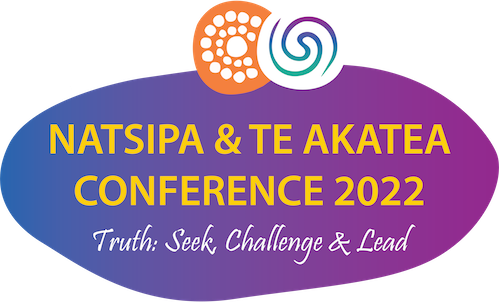KEYNOTE SPEAKERS
Below are just a few of our Keynote Speakers. We will be adding more speakers as soon as they are confirmed.
 Australian Speakers
Australian Speakers
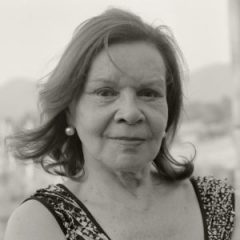
ABOUT LOIS
Lois’ childhood was spent on orchards in Shepparton East and Orrvale districts of the Goulburn Valley after her family moved from the Cummeragunja Aboriginal Reserve near Barmah. These experiences have shaped the lives of Lois’ family who have been very active in Aboriginal community development. Lois’ mother Mrs Geraldine Briggs AO was awarded for her work in this field. Lois’ sister the late Hyllus Maris was a visionary and writer who wrote Women of the Sun and established Worawa Aboriginal College in Healesville.
Lois has had a varied career which includes being the first Aboriginal model and the first Aboriginal person to work in television when she was engaged to work on the GTV 9 Breakfast Session in the 60’s. Lois and her sisters formed a singing group the Sapphires which toured Vietnam at the height of the Vietnam War. Lois’ nephew Aboriginal playwright Tony Briggs wrote about these experiences in the smash hit ‘The Sapphires’ which as a stage play completed sell out seasons in Melbourne, Sydney and Perth before going on to be a to take 11 of 12 awards at the Australian Academy of Cinema and Television Arts Award (AACTA).
Lois began her career in the community sector as Assistant Director of the Aborigines Advancement League leading to senior positions in the State and Federal public service (spanning 16 years in public sector Aboriginal Affairs). Lois is author of Aboriginal Oral History of the Flats and co-author of Yorta Yorta Language Heritage. She headed Aboriginal Tourism Australia for more than a decade leading Indigenous tourism development and co-authoring the ‘Respecting our Culture’ tourism accreditation program for the Australian Tourism industry.
In 2003 Lois received The Centenary Medal for her work in tourism. In 2014 she was made a Member (AM) in the General Division of the Order of Australia for her significant service to the Indigenous community as an educator, advocate and role model.
Lois is currently Chairperson of the Department of Justice and Regulation, Regional Aboriginal Justice Advisory Committee (Eastern), a member of the government Community Assembly and state wide Aboriginal Justice Forum, Chairperson of the Eastern Local Aboriginal Education Consultative Group. She was appointed to a temporary position of Acting Commissioner for Aboriginal Children and Young People. She has a leadership role in Indigenous education and is involved in the implementation of the Department of Education and Training’s Marrung Aboriginal Education Action Plan.
As Principal of Worawa Aboriginal College, Lois oversees implementation of a holistic education for young Aboriginal women, nurturing Aboriginal culture, history and identity in an education framework – empowering Aboriginal girls and young women to ‘Walk in Both Worlds’.
She was named the 2017 Senior Victorian Australian of the Year and in May, 2017 was conferred an Honorary Doctorate (Social Science) by RMIT University.
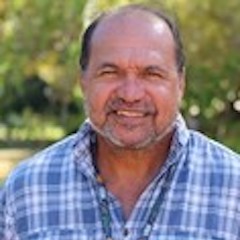
ABOUT GARY
Dr Gary Fry (PhD; MEd) is a descendant of the Dagoman people in the Northern Territory. Gary worked in the VET industry as a qualified electrician during the 1980’s and later as a primary school teacher, from 1990. He has taught and been principal in four remote Aboriginal schools across the NT over a decade and spent an equal amount of time at senior leadership and executive principal levels in urban mainstream schools in Darwin. Gary’s work as a school principal was one of two sourced as an exemplar in the development of the national Accountability and Performance Improvement Framework (APIF), used to guide school strategic agendas across Australia. In recent years Gary worked at Charles Darwin University (CDU) in roles including: Principal in Residence and later Director of the Centre for School Leadership (CSL); Associate Professor of Education Indigenous School Leadership; Director Centre for Collaborative First Nations’ Research (BIITE); Assistant Dean Indigenous Education and Senior Academic (Teaching and Research) at CDU.
Gary is an Aboriginal Critical Race Theorist (CRT) and his research interests include CRT methodology; racism studies; colonisation studies; Indigenous and mainstream education policy design and service modelling; school leadership studies; capitalism, structural inequality and wickedness; NT remote Aboriginal social capitalism; schooling and community development; NT Aboriginal existentialism; Western political economy; NT remote Aboriginal political economy; social complexity theory/post modernism/post structuralism and organisational studies.
Gary was awarded the 2021 University of Sydney medal for academic excellence, the Sister Alison Bush Medal. This award was based on Gary’s PhD thesis: Indigeneity as a foundation for patterned Northern Territory remote Aboriginal student achievement within a stratified western education system. This thesis engaged in the complex interactions of Aboriginal educational policy performance within Australia’s structural tensions of hyper-capitalism and its intersectionality in wealth and racialised inequality, locating Indigeneity at the core of progressive Indigenous educational policy formatting in the NT. This research served to strengthen ideals of social capitalism and attempts in bending a disastrous trajectory in Australia’s western political economy and its unstable ‘middle ground’ in producing destructive impacts on Indigenous education policy design and delivery.
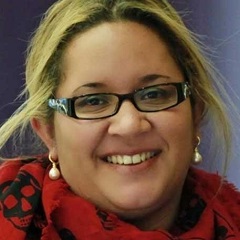
ABOUT MEGAN
Megan Davis is an Aboriginal activist and human rights lawyer. Her traditional country is west of the Bunya Bunya Mountains in Queensland. She is a Barrungam language speaker a part of the Cobble Cobble Clan. Megan was the first indigenous Australian to sit on a United Nations body and she is now Chair of a UN permanent forum.
Megan is a Constitutional Lawyer by trade and holds the Indigenous Pro-Vice Chancellor position at the University of New South Wales in Sydney where she currently resides.
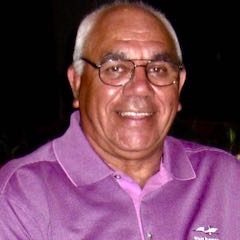
ABOUT BOB
Professor Morgan (EdD) has a long and distinguished history of involvement and leadership in Aboriginal/Indigenous education and training in Australia and internationally. He has an indivisible commitment to the principles of Aboriginal sovereignty, social equity and restorative justice.
Professor Morgan is a Gumilaroi man from Walgett, north-west NSW. He is a highly respected and acknowledged Aboriginal educator/researcher who has worked extensively throughout Australia and internationally in the field of Aboriginal knowledge and learning for over 45 years.
Professor Morgan is particularly interested in and advocates the need for the design and development of culturally responsive, safe, contextual and affirming environments that more effectively respond to the socioeconomic and cultural needs and aspirations of Aboriginal peoples. His involvement and experience with Aboriginal education and training is shaped and influenced by his many years of senior leadership at the state, national and international levels of Aboriginal education policy and programming development.
Professor Morgan has served on several government commissions, boards and community-based organisations including the NSW Education Commission, the NSW Anti-Discrimination Board, NSW Board of Adult Education and the NSW Aboriginal Education Consultative Group. He has also hosted a number of Aboriginal men’s healing and leadership conferences. Professor Morgan was instrumental in founding, with 5 other Aboriginal men, the NSW Koori Rugby League Knock Out – one of the largest sporting and cultural Aboriginal events held in Australia today.
Professor Morgan serves as Chair of the Board of Aboriginal and Torres Strait Islander Studies and Research at the University of Newcastle and serves as Conjoint Professor with the Wollotuka Institute. Professor Morgan was elected inaugural Chair of the International Council of the World Indigenous Peoples’ Conference on Education (WIPCE) in 2014. Professor Morgan also serves as a Visiting Professor with Minzu University, Beijing, China.
 New Zealand Speakers
New Zealand Speakers
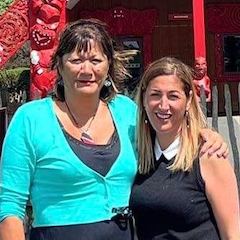
ABOUT THERESE & ITI
Leading for the restoration and transformation of Māori communities
Abstract
Māori are the tangata whenua of Aotearoa – the first peoples of the land of Aotearoa. After leaving Hawaiki the ancestors of Māori successfully adapted to life in the South Pacific. They developed sophisticated social, economic and political systems that enabled them to flourish and thrive for hundreds of years. In the early 1800s European settlers began to infiltrate Māori communities and by the second half of that century this infiltration had progressed into invasion and dispossession. The colonisation of Aotearoa transpired during this time despite the establishment of two constitutional covenants: He Wakaputanga – o te Rangatiratanga o Nu Tirene (The Declaration of Independence of the United Tribes of New Zealand) and Te Tiriti o Waitangi (The Treaty of Waitangi). These covenants were developed to frame an equitable and harmonious relationship between Māori and non-Māori. This envisaged relationship has never transpired and for nearly 200 years, with restricted authority and limited resources, Māori tribes – hapū and iwi, have resisted colonialism and have fought to restore Tino Rangatiratanga – authority to control their people, land and resources. Māori educational leaders can play a critical role in this restoration process and this keynote presents examples of how leaders can contribute to Māori transformation so that the visions and aspirations of hapū and iwi can finally be
realised.
Therese Ford
Ngāi Takoto, Ngāti Kahu
Ko Kurahaupo te waka, ko Tohoraha rāua ko Puwheke nga maunga, ko Rangaunu te moana, ko Awanui te awa, ko Ngāi Takoto tōku iwi, ko Therese Ford ahau.
I descend from Muriwhenua – the Far North tribes of Aotearoa. I also descend from Irish ancestors so my bicultural lineage means that I constantly negotiate the tension of being both the colonised and the coloniser. My work with Māori communities and Māori leaders focuses on indigenous resistance, revitalisation and restoration. Accordingly, my research projects have explored indigenous and decolonising approaches to school leadership in Aotearoa. The professional learning and development I specialise in focuses on supporting Māori leaders to work in relationship with hapū and iwi (tribal) leaders so that their visions
and aspirations can be realised.
Iti Joyce
Ko Whakarongrua tōku maunga, ko Utakura tōku awa, ko Ngāti Toro tōku hapū, ko Ngāpuhi tōku iwi, ko Iti Joyce tōku ingoa.
I am a mother of two and grandmother of four, with more grandchildren to come. I’ve been privileged to have been brought up in a whānau that is committed to our various marae, hapū, iwi and community. I have a strong connection to both my iwi, Tainui on my mothers side and Ngāpuhi on my fathers. I have been actively supporting both my iwi over the years and feel a responsibility about bringing iwi aspirations to the forefront. More momentum is gained when you create the context and conditions by iwi Māori for iwi Māori.
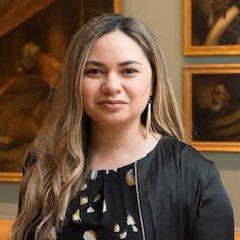
ABOUT JASMINE
Bio:
Jasmine Te Hira (Te Rarawa, Ngāpuhi, Atiu, England) is an artist, researcher and community partnerships broker from Aotearoa. Her experiences have led her to work across a range of sectors including art education at Auckland Art Gallery Toi o Tāmaki, rangatahi education technician for the National Iwi Chairs Forum, member of Komiti Māori for Te Pūkenga and a participant of the Ngāpuhi Education Advisory Rōpū. Jasmine’s current Masters project is based at Te Whare Wānanga o Wairaka (Unitec), where she graduated as Senior Scholar from her undergraduate degree in Design and Visual Arts (2016). A motivated advocate to support the growth of critical and creative thinkers, learners and makers, Jasmine’s passion is to facilitate meaningful environments for intergenerational communities to explore the power of creativity as a tool for transformation.
Abstract:
How can the voices of rangatahi Māori provide provocation, influence and impact on decision makers? As rangatahi Māori, we hold a unique understanding of how the leadership of yesterday will create the conditions for our realities tomorrow – futures we will need to be kaitiaki of. A range of views and experiences will be presented in this talk from rangatahi Māori exploring how intergenerational collaboration can lead to achieving our collective aspirations today.
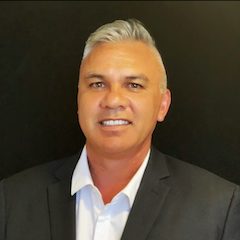
ABOUT BRUCE
Bruce, of Tūwharetoa and Ngāti Raukawa descent is the Principal of Te Akau ki Pāpāmoa School When he became principal of Te Ākau ki Pāpāmoa School in 2007, 90% of the students at the school were failing, and were not engaged.
His vision is ‘To foster a deep sense of belonging & self by providing the conditions which promote identity, culture, and Te reo Māori (Māori language)’
New Zealand’s first Apple Distinguished Primary School (ADS) and one of the country’s leading mainstream schools in normalizing the delivery of te reo Māori and cultural competencies alongside positive impacts on student achievement, school, and community culture.
Thirteen years on, the school is recognized globally as one of the most innovative and digitally acclaimed primary schools in the world.
Bruce currently serves on the National Māori Principals Executive (Te Akatea), New Zealand Principals Federation Executive, Māori Achievement Collaborative Trust Board, National Māori Medium reference group, ERO- External Advisory Group for te reo Māori in English medium, ERO-External Principal’s Advisory and the National Education Act Sector reference group.
He has experience on the NZ Educational Institute Principals Council & National Resource Teachers of Learning & Behaviour Executive.
Bruce has presented extensively at international and national education / leadership conferences & summits across the globe including New Zealand, Ireland, Spain, USA, Korea, China, Australia, Uruguay, Sweden and England. He is the only foreigner to have presented in the Steve Jobs Theatre at Apple Park, the corporate headquarters of Apple Inc. in Cupertino, California
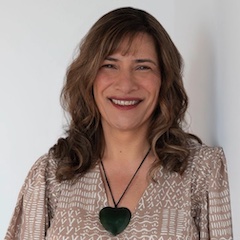
ABOUT LEANNE
Leanne’s career spans 26 years as a Principal. She has extensive experience representing Principals in Regional, National, and International settings. In 2021 Leanne was the sole recipient of the Trans-Tasman NEiTA NZ Principal Leadership Award and Teacher Mentor Award. More recently, Leanne has become the President-Elect of the New Zealand Principal Federation, taking up the role in 2023. Leanne is the first Wahine Māori (Female of indigenous descent) to hold this position. She takes on this position with the knowledge that she will lead with the guidance and support of her tupuna (ancestors), iwi (mob), whānau (family), and the whānau of Te Akatea Maori Principals. Leanne is a founding member of the established relationship that we all cherish today between Te Akatea and NATSIPA.
Leanne will provide us with the history of our special relationship. As separate entities plus the fusion of our organisations, she will outline the need to be deliberate in supporting our members, ensuring we have strong, influential voices, not just at any table but at the top table! As the saying goes…it takes a village to raise a child but it takes a mob/an Iwi and an Aka to raise a leader. We do not do this alone. Kia mohio ko tahi tatou – being clever together.
As part of her keynote, Leanne will share insight into her journey as an indigenous female leader, from her very humble beginnings to the Presidency of The New Zealand Principals Federation. Leanne will share her evolution into the role ~ of being confident and competent as a woman in both a Pakeha (European) world and Te Ao Maori. Described as authentic, relatable and inspiring, Leanne is a dynamic and highly respected educator who will have you moved by the honesty of her korero (talk).

